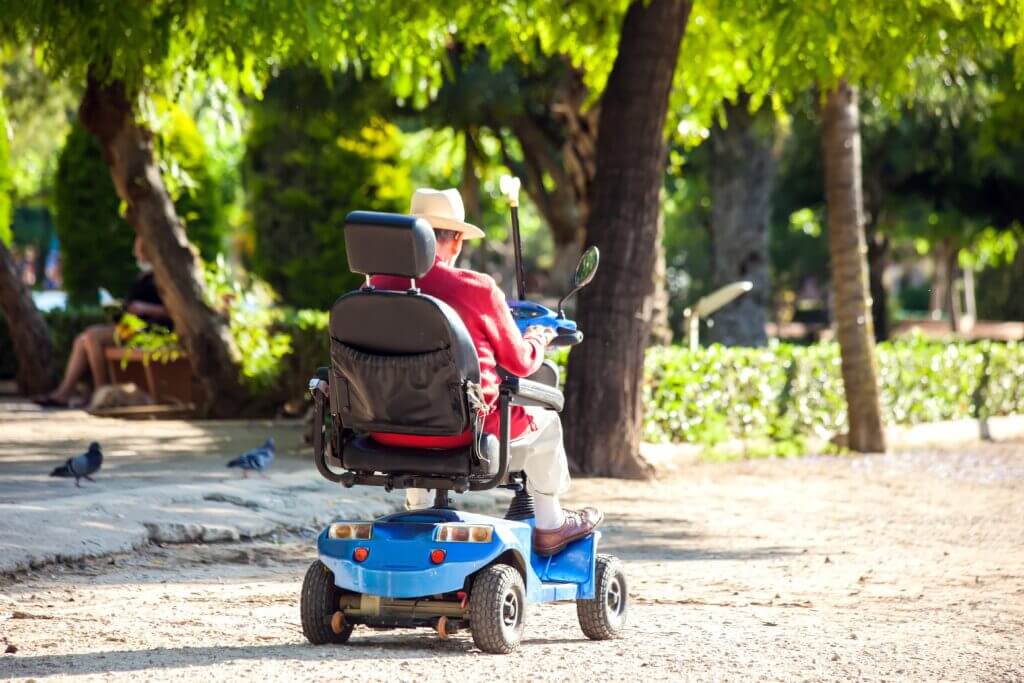

Having mobility challenges shouldn’t mean that you can not be active. In fact, being more active and creating a healthy lifestyle can benefit many factors in your daily life.
Staying active and engaged is important for maintaining physical health and overall well-being, regardless of mobility limitations. Whatever physical ability you may have, there are always mobility scooter exercises and modifications for anyone with mobility challenges that you can do today to keep yourself active and healthy.
Carrying out exercise activities does not necessarily mean that you have to attend the gym or go for a run – it can just be whatever gets your heart pumping.
Why Should You Exercise?
Physical Health
Obtaining regular activity is great for your physical health, helping to reduce the risk of developing any major illnesses including heart disease, obesity, diabetes and much more. Mobility scooters, if used for long periods of time, can cause strain on your body, making discomfort and injuries a significant risk. Incorporating some simple exercises into your routine can strengthen your muscles and help keep your body fit and mobile.
Mental Health
Carrying out regular physical exercise also has an amazing effect on mental health, reducing the risk of sleeping patterns, stress and depression. Mental health is just as important as physical well-being and for mobility scooter users, this is especially important. Physical exercise does wonders for boosting self-esteem and can introduce you to new people and new activities – all of which are vital for your mental well-being.
What Excercise Can I Do?
The level of exercise that you can do is completely dependent on your ability. Nevertheless, no matter have much you can do, there will be an exercise that tailors to your level of fitness. Here is a list of a few low-impact sports to try out:
- Swimming
- Seated Arm Circles
- Seated Leg Extensions
- Seated Torso Twists
- Seated Shoulder Shrugs
- Seated Calf Raises
- Deep Breathing Exercises
How Often Should I Exercise?
It is recommended that adults should be active daily and have at least 150 minutes of physical activity throughout the week.
On the other hand, if you are not used to much exercise, you should aim for 10-minute sessions at first and slowly build up your physical ability before doing longer sessions. To know if these exercises are working suitably for you, you should be a little bit out of breath but able to hold a conversation.
Exploring New Activities
Exploring new activities offers lots of new opportunities to get out and find some new hobbies, boosting overall physical, mental and emotional health. Here are some reasons as to why exploring new activities is beneficial to our health:
Mental Stimulation
Giving new activities a try helps to stimulate the mind, be adventurous, and keep you mentally engaged. This offers opportunities for learning, being creative, and problem-solving, which all contribute to preventing boredom and stimulating cognitive function.
Social Connection
Being involved in new activities gives you the opportunity to meet new people, connect with others who may share similar interests, and make new friends. Having social interaction is important for emotional and mental well-being, and exploring new activities can start meaningful connections and reduce the feeling of isolation.
Quality Of Life
By expanding your daily routine to incorporate new activities, you help to improve your quality of life. It provides extra time for enjoyment and fulfilment, contributing to a more meaningful and satisfying daily routine, where you can arrange a social day out with your friends and start making use of the time in your day.

